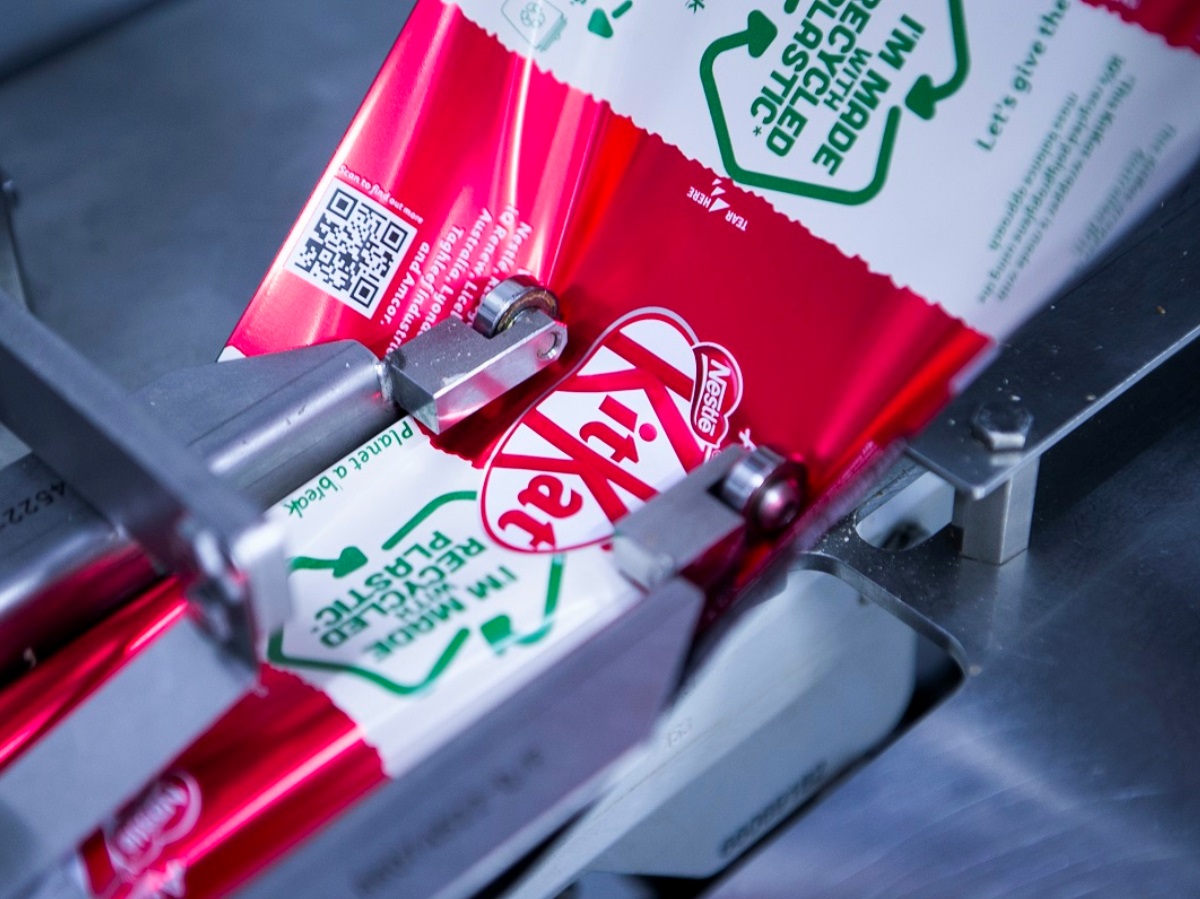Nestlé has collaborated with a coalition of Australian companies to develop Australia’s first soft plastic food wrapper made with recycled content.
A prototype KitKat wrapper has been created with 30 per cent recycled content, using an innovative process that collects and processes waste soft plastic, turns it back into oil, and then into a food-grade prototype wrapper.
Turning soft plastic back into oil is the only path plastic waste can take if it is to be transformed into a food safe wrapper: technology that Australia does not yet have at scale.
The group of companies includes Nestlé, CurbCycle, iQ Renew, Licella, Viva Energy Australia, LyondellBasell, REDcycle, Taghleef Industries and Amcor, and they have a shared vision of closing the loop on recycled soft plastics.
The initiative emerged from a trial underway on the NSW Central Coast, where Australian Recycler iQ Renew and Nestlé are working together on a trial of kerbside collection of soft plastics. These collected plastics, together with plastics collected via the REDcycle supermarket soft plastic collection, formed the starting point for the project.
Sandra Martinez, CEO of Nestlé Australia, said the project had been driven by a shared determination to resolve the soft plastics challenge.
“Between us, we have shown that there’s a pathway to solve the soft plastics problem. To build this at scale, across all states and territories, across hundreds of councils, is going to take a huge effort from government at all levels, from industry and from consumers, but I think it can be done.
“Manufacturers like Nestlé will have a key role in driving demand for food-grade recycled soft plastic packaging, and creating market conditions that will ensure all stakeholders throughout the value chain view soft plastics as a resource and not waste.”
Minister for the Environment, Sussan Ley, said the work of the industry coalition was indicative of the level of collaboration required if Australia is to embrace a fully functioning circular economy.
“The Morrison Government is driving a $1 billion transformation of the waste and recycling industry, steering it toward the circular economy. Helping kick-start the circular economy is the best way to get bang for the taxpayer buck, realising both environmental and economic benefits,” she said.
Food-grade recycled soft plastic packaging is a key missing link in Australia’s bid to improve waste management and build a circular economy, with a lack of both collection and processing infrastructure making it difficult to keep waste out of landfill and impossible to meet demands for packaging with recycled content.
By co-developing a recycled plastic packaging, KitKat in Australia is one of the first movers in this area. This innovation is driven by Nestlé’s pledge to reduce its use of virgin plastics by one-third by 2025.
On 19 March, Nestlé will host leaders from across the plastic packaging value chain for a roundtable event, The Wrap on Soft Plastics, exploring the opportunities and hurdles for soft plastics recycling.
By Deborah Jackson
c-store.com.au



